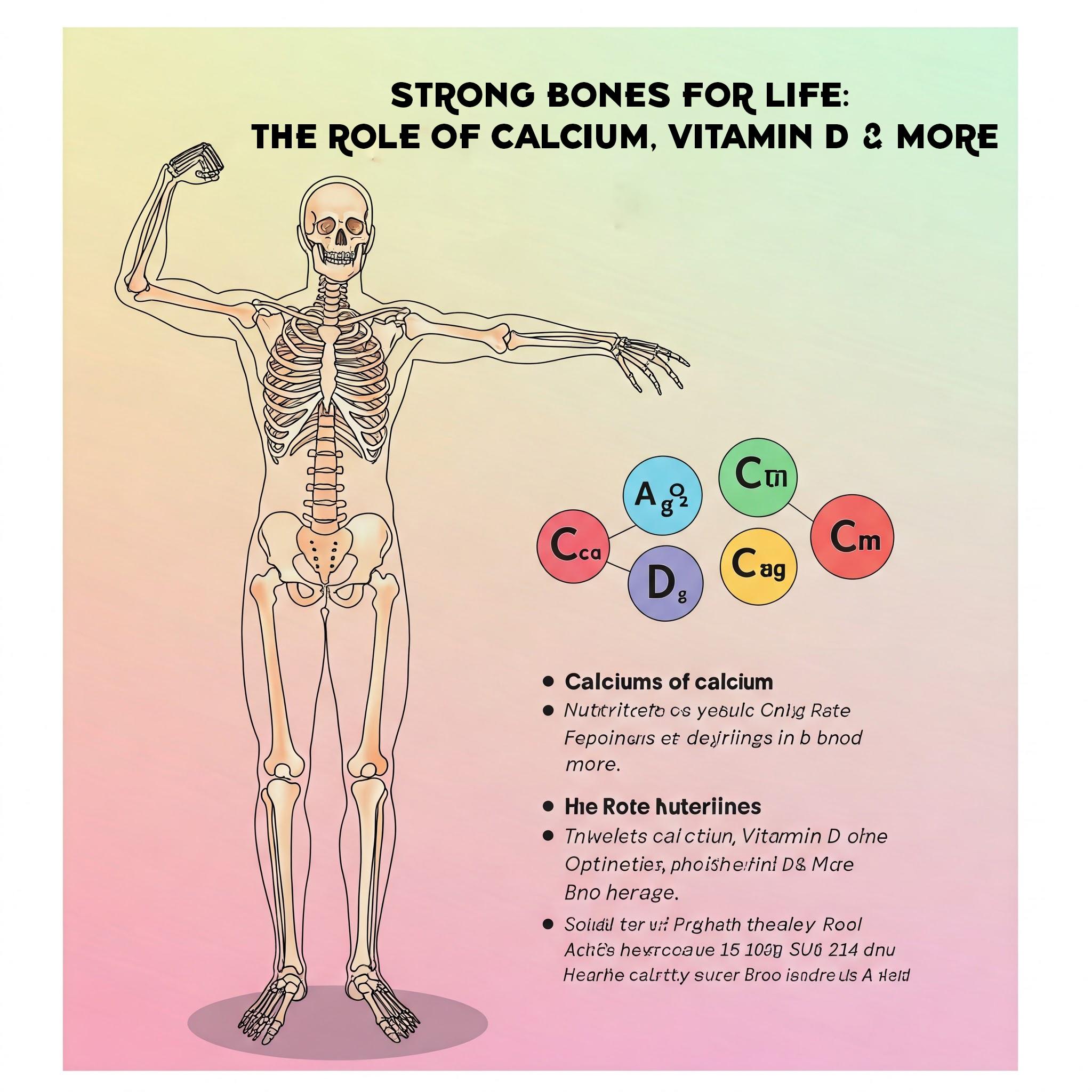Strong Bones for Life: The Role of Calcium, Vitamin D & More

Every stage of life requires maintaining strong, healthy bones, but this is especially true as we become older. While calcium and vitamin D are well-known for their role in bone health, there's much more to the story. From magnesium to vitamin K2, and supportive nutrients like glucosamine and chondroitin, a comprehensive approach to bone strength is the best defense against fractures, osteoporosis, and age-related bone loss.
Why Bone Health Matters
Bone is a living tissue that constantly remodels. We achieve our peak bone mass at age 30, after which bone density may start to decrease, particularly if we are not eating enough. For women post-menopause and older adults, the risk of osteoporosis significantly increases. A preventative approach that emphasizes the proper nutrients is therefore essential.
1. Calcium: The Foundation of Bone Strength
Calcium is the most abundant mineral in the body, with over 99% stored in the bones and teeth. 2. It is necessary for nerve transmission, muscular contraction, and bone structure. If your body lacks calcium from your diet, it pulls it from bones, weakening them over time.
✅ Get it from diet: Dairy products, leafy greens, almonds
✅ Supplement wisely: NeoFlex Calcium Plus Vitamin D is a convenient option to ensure you're meeting daily needs.
2. Vitamin D: Helping the Body Absorb Calcium
Vitamin D doesn't build bones on its own, but without it, calcium can’t be absorbed effectively. It also plays a role in muscle strength and balance—key factors in preventing falls and fractures in older adults.
☀️ Sunlight helps your body make vitamin D, but many people, especially those in northern climates or with darker skin tones, don’t get enough.
💊 Try a supplement like Vitamin D3 – Supports Immunity & Bone Health to maintain optimal vitamin D levels year-round.
3. Beyond Calcium and Vitamin D: Other Key Nutrients
Magnesium
Works hand-in-hand with calcium and helps with bone matrix formation. Deficiencies are common due to poor dietary intake or certain medications.
Vitamin K2
Guides calcium to your bones (instead of arteries) and supports bone mineralization.
Zinc
Important for bone tissue renewal and collagen synthesis. Those with low zinc intake may have poorer bone density.
Glucosamine, Chondroitin & MSM
These compounds support joint health but also play a role in maintaining cartilage and cushioning bones.
💊 A joint-friendly formula like NeoFlex Glucosamine Chondroitin MSM can offer additional structural support.
4. Lifestyle Factors for Bone Health
-
Exercise: Weight-bearing and resistance exercises help strengthen bones and muscles.
-
Avoid smoking & limit alcohol: Both reduce bone density over time.
-
Healthy weight: Being underweight can increase the risk of fractures.
Combine good nutrition with an active lifestyle for maximum bone protection.
5. Choosing the Right Supplements
Not all bone health supplements are created equal. Look for those that combine calcium, vitamin D3, magnesium, and vitamin K2 for optimal synergy.
💡 Check out this combo product for comprehensive support:
👉 NeoFlex Calcium Plus Vitamin D
For those managing overall aging concerns including bone and eye health, consider the following multi-nutrient options:
-
Classic AREDS 2 Multi Powder – A versatile daily supplement with added eye and bone benefits.
-
Traditional AREDS 2 Softgels: Designed to support bones and eyes.
-
Classic AREDS 2 Zinc-Free – Ideal for individuals sensitive to zinc.
Final Thoughts: Building Bones for the Future
Bone health isn’t just about avoiding osteoporosis—it’s about staying active, independent, and strong as you age. By combining smart nutrition, targeted supplementation, and an active lifestyle, you can maintain bone strength for life.
- Art
- Causes
- Crafts
- Dance
- Drinks
- Film
- Fitness
- Food
- Games
- Gardening
- Health
- Home
- Literature
- Music
- Networking
- Other
- Party
- Religion
- Shopping
- Sports
- Theater
- Wellness


